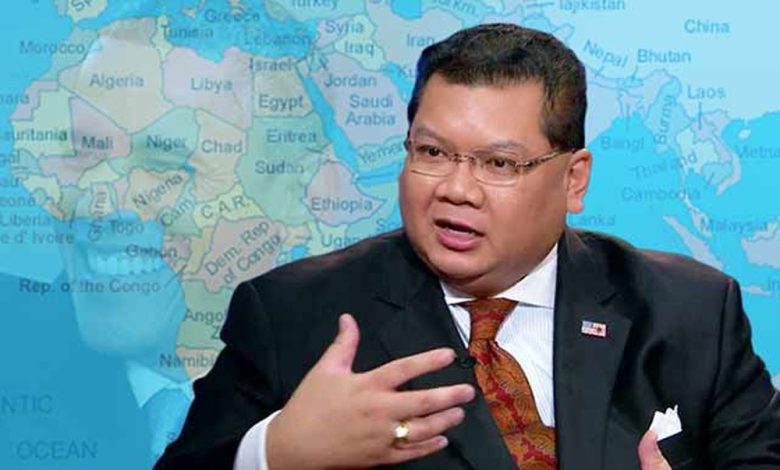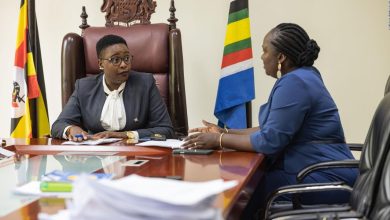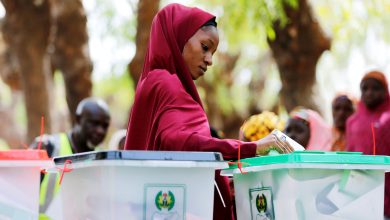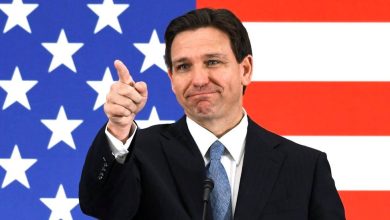U.S.-imposed sanctions on Sudan is a good first step, says former special envoy

NPR’s Ari Shapiro talks with former ambassador J. Peter Pham about how the U.S. has imposed its first sanctions related to the conflict in Sudan after ceasefire efforts collapsed.
ARI SHAPIRO, HOST:
The U.S. has imposed its first sanctions relating to the conflict in Sudan. The sanctions come after weeks of intense fighting and multiple failed cease-fire attempts. J. Peter Pham is the former U.S. special envoy to the Sahel region. Ambassador Pham, welcome to ALL THINGS CONSIDERED.
J PETER PHAM: Thank you for having me, Ari.
SHAPIRO: What’s your initial reaction to these sanctions?
PHAM: Well, the sanctions are a good first step. It indicates the seriousness with which the United States and, really, the international community views the seventh week of fighting the 2,000 – at least, so the official count – 2,000 civilians killed, 1.6 million displaced. It’s a humanitarian tragedy already. And increasingly, the toll that it’s taking on not just Sudan but its neighbors is very serious. So it’s a good first step, but it is only that, I emphasize – a first step.
SHAPIRO: Sudan’s army has backed out of talks to extend the cease-fire, and so do you think we’ve reached the point of no return? Is this a full-blown civil war?
PHAM: One could argue that we’ve definitely reached a tipping point, although one could have said that, you know, weeks ago.
SHAPIRO: Yeah.
PHAM: But certainly, this week has been particularly tragic with the walk away from the cease-fire, which had been brokered by the United States and the kingdom of Saudi Arabia, down to today, the tragic looting of the Sudan National Museum.
SHAPIRO: I want to touch on the human cost of this conflict. Today on Morning Edition, we heard from Reuters journalist Maggie Michael about babies who are dying of heat and hunger at the largest orphanage in Khartoum.
MAGGIE MICHAEL: So they don’t have anyone to feed them. They needed to have a bottle of milk every three hours. They’re just babies. The milk could be there but no one to actually carry them and feed them. The No. 2 is heat. The last wave was really, really hard. We have 13 in one day, 10 in a second day, 14 in another day, and it’s because of heat.
SHAPIRO: Ambassador Pham, if this conflict doesn’t end quickly, what does that mean for people living in the crossfire?
PHAM: It’s going to be a very tenuous existence of the arrival of food, of clean water, of fuel to keep generators, electricity, water flowing. And we’re heading into the full heat of the summer, so it’s going to be very, very difficult. But it’s also going to be difficult for people in the periphery. Sudan is a somewhat centralized country. There are only few channels in which imports of vital medicine and other supplies can come in. So I think the whole country’s going to be hurting. And then the neighbors themselves are saturated with refugees, and now they’re getting more. Sudan itself used to welcome refugees, and now those – some of those people are being – already refugees from one conflict now discovering another where they’ve had rupture (ph) and now moving to a third country. It’s a humanitarian tragedy.
SHAPIRO: Can you explain to people who see this as an internal conflict why the U.S. should be playing an active role here?
PHAM: Well, it is in our national interest, to put it very bluntly – not just our values and the concerns we’ve expressed about the humanitarian toll, but Sudan sits astride the Red Sea. Ten to 15% of the world’s commerce flows right past Sudan. It borders upon other conflicts that have either just recently been pacified or are ongoing – Ethiopia, South Sudan, Chad, Egypt – sensitive areas – Libya. Plus, we have malign external actors muscling in. The Wagner Group of Russia has made overtures, and there have been links to the RSF. There have been attempts by Russia to gain a port on the Red Sea in Sudan. So there are all sorts of other factors on the geopolitical level and, plus, the interests of a number of our partners in the region. Sudan had been set to join the Abraham Accords. An Israeli delegation visited earlier this year. Saudi Arabia, United Arab Emirates, Qatar, other partners in the Gulf have significant investments. So to paraphrase an old advertising adage, what happens in Sudan is not going to stay in Sudan.
SHAPIRO: That’s Ambassador J. Peter Pham, former U.S. special envoy to the Sahel region. He’s now a distinguished fellow at the Atlantic Council. Thank you so much.
PHAM: Thank you.





